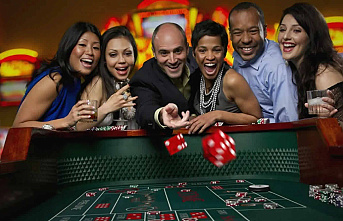In Johnny Depp's case against Amber Heard, a seven-member civil jury in Virginia will resume its deliberations Tuesday. The jury will consider a different set of facts than the public debate surrounding the high-profile proceedings.
Six weeks of testimony was devoted to details of the alleged abuse Heard claims she suffered at Depp's hands. Heard has detailed more than a dozen instances in which she claims she was assaulted and abused by Depp.
Depp denied any sexual or physical abuse and claims that Heard made the claims in order to ruin his reputation. Depp's online fan base has focused on the belief that Heard is untruthful and will decide the outcome.
The case is defamation. Depp sued Heard in Fairfax County Circuit Court for libel, for $50 million. She was referring to a December 2018 Washington Post op-ed in which she called herself "a public figure representing domestic violence."
Although Depp is not mentioned in the article, his lawyers claim that he was defamed. The article focuses on domestic violence policy, with Heard's lawyers claiming she has the First Amendment right to weigh-in.
Camille Vasquez, Depp's lawyer, argued that Heard has limits to his free speech rights in closing arguments.
She stated that "The First Amendment does not protect lies that hurt or defame people."
Depp's lawyers point out two passages in this article that clearly refer to Depp.
Heard says in the first paragraph that she became a public figure representing domestic abuse two years ago and felt the full force our culture's wrath. Depp's lawyers claim it is a reference to Depp since Heard had publicly accused Depp of domestic abuse in 2016, two years before the article was written.
She also states in a second paragraph that she had the rare opportunity to see, in real-time, how institutions protect men accused or abuse. (Depp's lawyers are seeking damages for a headline that was above the online version of the article. Heard did not write it.
The jury must decide whether the Post contains defamatory passages. It has to reach a unanimous verdict. The verdict form provides step-by-step instructions for how they can decide that.
Heard's lawyers claim that they have presented mountains of evidence to prove Heard was abused. They say that even if jurors were to believe she was never abused, Heard should prevail in the case.
Because libel law requires that you consider several factors. The first is that the defamatory statements must be made about the plaintiff. Heard's lawyers stated that the article does not mention Depp. He is not mentioned and the article's focus is on Heard’s experiences with the aftermath of speaking up. Her lawyers claim that these statements are objectively true, even though she was not in fact abused.
Depp's lawyers claim that the passages refer to Depp because of the public attention surrounding their 2016 divorce proceedings.
Depp is also a public figure. Heard cannot be found guilty for libel unless the jury determines that Heard acted "actually malice." This requires convincing evidence that Heard either knew that what she wrote was false, or that she had reckless disregard for truth.
J. Benjamin Rottenborn, Heard lawyer, stated during Friday's closing arguments she had carefully reviewed the drafts of the article. The first draft was not written by Heard but by the American Civil Liberties Union. She also worked with her lawyers to ensure that the article passed legal scrutiny. Rottenborn stated that this fact alone proves that she did not act with actual malice.
Depp's lawyers suggested to the jury that Heard's attorneys could not be trusted if they believed that Heard was lying or embellishing abuse claims. All of Heard's abuse claims should be dismissed.
Vasquez stated, "You can believe any of it or none." Vasquez stated, "Either she is the victim of horrible, ugly abuse or she is a woman who will say anything."
Rottenborn stated that Heard's closing remarks were a distraction from the overwhelming evidence she has and sent a dangerous message for domestic-violence victims.












